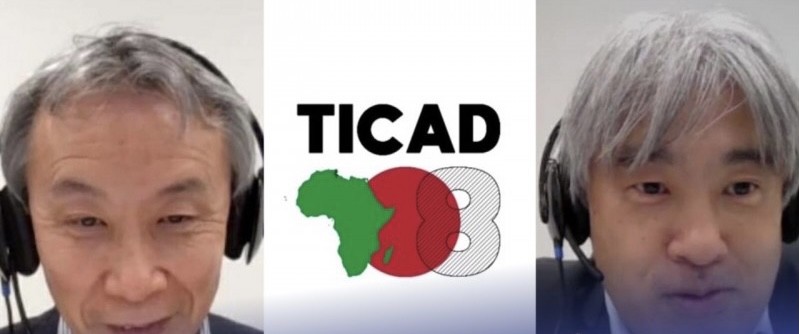
Japan Seeks Cooperation with Morocco For Resilient, Prosperous Africa
Rabat - Known for its economic and political influence across Africa, Morocco is considered a “very important country” for Japan in the North African region, says Ryuichi Kato, vice president of Japan Investment Development Agency (JICA).
Describing Morocco as a “hub country,” Kato noted on Thursday in a press briefing for the Tokyo International Conference on African Development (TICAD 8), that JICA is employing previously acquired “assets” and lessons from the agency’s cooperation projects in Morocco to advance numerous sectors across the continent.
Giving the example of JICA-led initiatives in Morocco in the port and fisheries industries, Kato said that the Japanese agency is trying to adopt similar approaches used in Morocco in projects in West Africa.
“Together with Morocco, we will be able to create [added] values [in Africa],” Kato said, adding that he is “looking forward to more cooperation” with the North African country.
Morocco’s political and economic influence on the continent appears to be key to Japan’s vision for a “resilient, inclusive, and prosperous Africa” which is embedded in the mission statement of the TICAD.
This year, the conference will celebrate its 30th anniversary in Tunis, Tunisia on August 27-28th, marking the second hosting of the event in an African country after the 2016 gathering in Nairobi, Kenya.
However, TICAD’s eighth edition in Tunis comes in a context defined by the ongoing COVID-19 pandemic and the war in Ukraine which calls for renewed focus on the social issues hurting the continent’s development in relation to education, health care, and climate change.
Covid: ‘Biggest Test for Africa’
Speaking at the TICAD 8 press briefing, Tadayuki Miyashita, deputy director for Africa at Japan’s Ministry of Foreign Affairs, said that the COVID-19 pandemichas been the “biggest challenge and test for Africa.” He added that the pandemic has “recorded and lost growth” accumulated over the past decades. This has eventually led to “major detrimental effects on women, youth, and [the] poor.”
Miyashita added that the Russian invasion of Ukraine has represented a “threat” to the world order and rule of law and its impact “is also felt in Africa” in terms of “expensive price levels of food and energy” which has a “great disadvantageous impact on African people and [their] livelihoods.”
Education, health care, climate change
In such a context, TICAD’s traditional focus on boosting investments has shifted this year to give more weight to social issues. Meanwhile, it continues to call for economic cooperation between Japanese businesses and their African counterparts with the support of international partners such as the UN agencies and the African Union Commission.
Miyashita further noted that peace and stability are key to Africa’s ”growth and good recovery,” adding that cooperation is negatively impacted by non-constitutional transitions of government seen across the continent, as well as deteriorating security.
For his part, Kato said that political instability in West Africa, for instance, is expected to limit JICA’s cooperation efforts in the region since they require dispatching personnel on the ground, adding that providing “support through people” complements financial and technological support.
African ownership
With the COVID-19 pandemic making Africa’s “vulnerability quite prevalent” in key social and economic sectors, Kato said that TICAD seeks to “prioritize the will of the African people,” while promoting human resource development across the continent and boosting African “ownership.”.
As Miyashita puts it, Africa has “positive aspects [that] should be utilized to bring solutions to different challenges and issues.” These aspects include a growing young population and markets, the presence of business and job opportunities, as well as “huge waves of startup creation.”
These startups introduce innovative solutions to pressing issues related to education, health, finance, and energy at the local level, which is the “desirable pathway” for change, according to the Japanese diplomat.
As Japan places great value in the African startup spirit of ownership, TICAD 8 will see the organization of side events to address African needs in different sectors. Among them is a Business Forum which is expected to connect Japanese and African business owners to advance bilateral cooperation through the signing of numerous momentums of understanding (MoUs).
As “people with different backgrounds come together under one roof” to prioritize African needs, TICAD 8 is expected to shed light on the progress of Japan-Africa relations as well as adopt measures to address pressing issues such as food insecurity, the ongoing energy crisis, and forecasted economic recession.
Members from civil society, representatives of the private sector and academic world in Africa and Japan, as well as officials from the World Bank, the United Nations, the African Union Commission, and the United National Development Program will soon meet in Tunis to discuss the future of the continent and its African Continental Free Trade Area (AfCFTA).
Source : Morocco World News.
